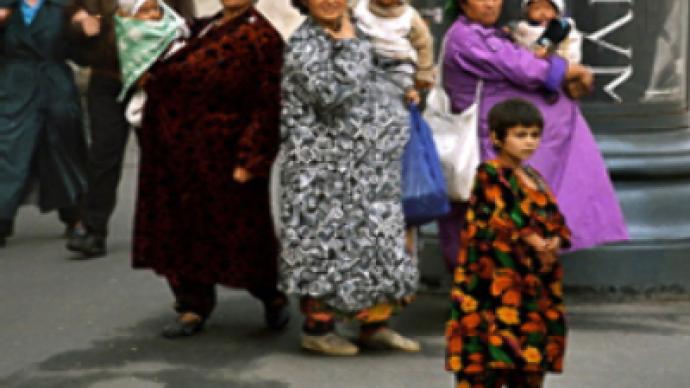The Economist: Russians die out, immigrants take their place

The population is dalling catastrophically, life expectancy is not rising and in the regions “social and economic deserts” are huge, reports British weekly magazine The Economist. The number of citizens of working age will only decrease, and i
Despite the attempts of the Russian authorities to increase the birth rate in the country, there is still not much reason for “demographic optimism”. Russians experience serious problems with health and the public health system leaves much to be desired. Free medical aid is guaranteed by the law, but in fact most patients take doctors money and gifts in order to receive proper treatment.
Demographic statistics in Russia are similar to those found during wartime. Annually the population declines by 700,000 people. The death rate is twice that in developed countries.
The Economist throws some light on the demographic processes which are taking place in Russia. The correspondent made a trip to a collective farm in the Smolensk region – only 250km west from the capital – and found that one third of the people working there are from Tajikistan.
The village is perishing as a result of “negative social selection”, says the geographer Tatyana Nefedova, an expert on social and economic problems in rural regions. The most active and capable people live in cities, while those who stay in the countryside have few work opportunities.
“The only solution to Russia's demographic problems appears to be immigration” The Economist concludes.
Workers from Central Asia are replacing Russians at work, but most of them have no education and are badly qualified. In the east of Russia most immigrants are Chinese. It is impossible to tell the exact number of people coming to the country to earn money, as many work illegally. The number of migrants might be as high as 10 million, who provide 8 % of GNP of Russia.
The native Russian population treats immigrants with hostility. Immigrants live in dread of police and skinheads. Over a half of the Russian population supports the slogan “Russia for Russians”. Almost 40 % of citizens have a feeling of “irritation, discomfort or fear” in relation to migrants. “They are prepared to work for a pittance and take our jobs”, locals told The Economist. The number of ethnic crimes keeps on rising. “SOVA, a body that monitors racism, last year counted 667 racist attacks, including 86 racially motivated murders”, The Economist reports.
Migrants, learn Russian!
The Upper Chamber has prepared a bill “About the legal status of foreign citizens” which proposes that immigrants to Russia sit an examination in the Russian language before they can get permission to live and work in Russia, Kommersant reports.
The government is considering the language exam as 70 per cent of the population of the Russian Federation feel hostility to foreigners, according to polls. Senators believe it's because of the language barrier.
Senators also consider that if residing in Russia provides a foreigner with a number of social rights (education, healthcare and pensions), “the state can demand at least the minimum knowledge of Russian language.”
Labour migrants have to speak Russian according to the safety requirements and to communicate with law enforcement bodies. Passing any such language exam will not be an obligatory requirement for employment. However, anyone who does pass the exam will have certain advantages including work permits for two years rather than one.
The examination will be based on the state programme “testing on Russian as a foreign language”. The test will be very similar to the American TOEFL test, and will provide 6 levels from elementary to advanced.
The migrants will only have to get the certificate at “elementary” level which requires a lexicon of approximately 780 words.
The test will include not only translation of phrases, but also elements of Russian geography, for example, knowledge of the state system of the Russian Federation, Kommersant reports.
The examination will cost $US 50.
Meanwhile, representatives of companies employing foreigners informed the newspaper that in their experience there were no examples of an applicant for work in a Russian company not knowing Russian.
Now, such testing is obligatory only for obtaining Russian citizenship. According to the amendments developed by the National Policy Committee of the Upper Chamber, proficiency in Russian will be obligatory at all stages of naturalisation of a foreigner. Proponents of the bill, which will be read out on plenary session of the Upper Chamber in the beginning of December, suggest including the Russian language certificate in the list of obligatory documents for when applying for residency in the country.
This requirement will concern only migrant labourer s. Soviet passport holders or foreigners who have relatives in Russia, won't have to pass the examination. Also this requirement will not apply to those who are provided with citizenship by the government order.












